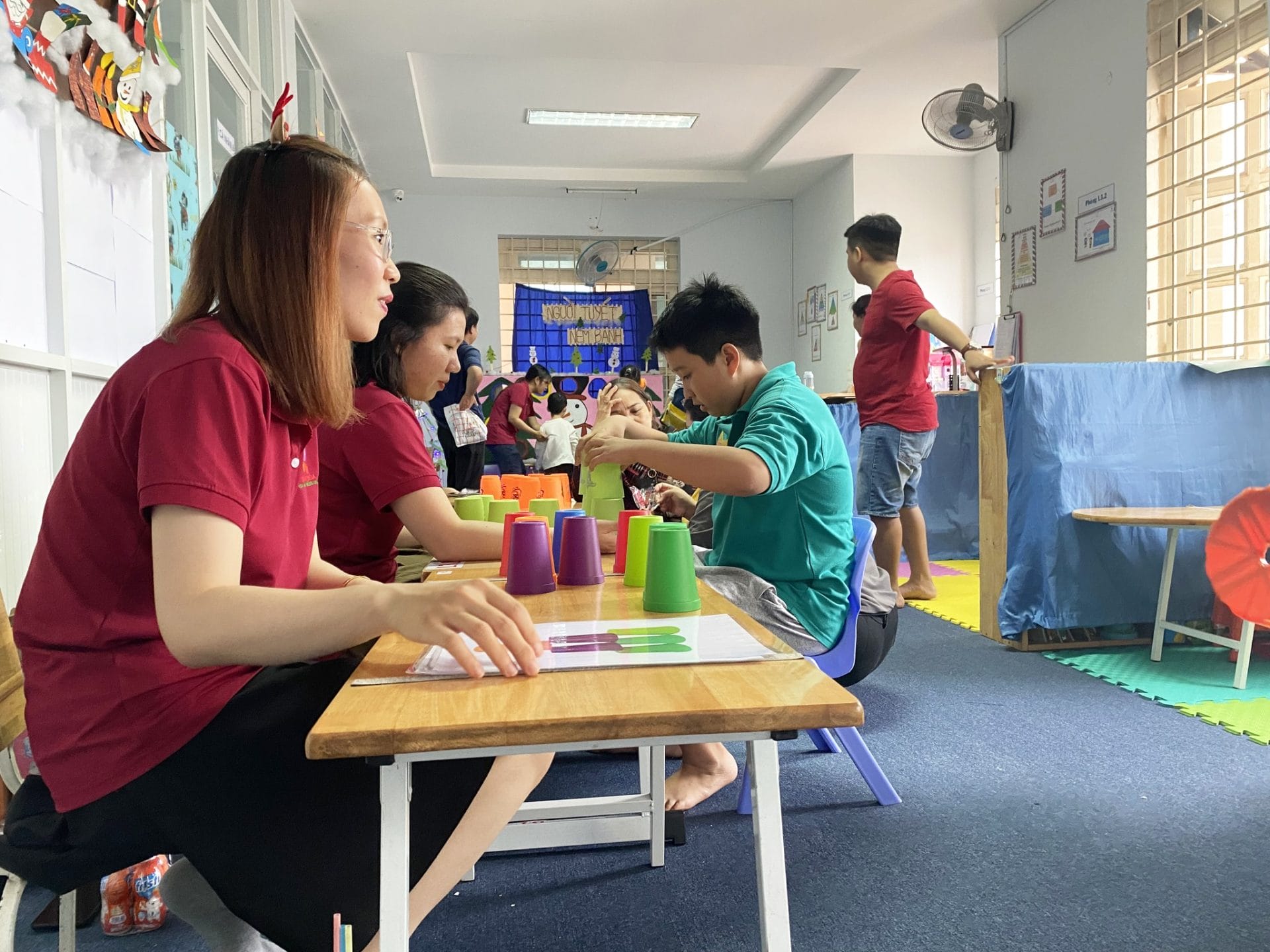On January 31, 2023, the Ministry of Health issued Decision No. 359/QD-BYT regarding the issuance of the document “Guidelines for Early Detection and Early Intervention for Children with Disabilities”.

According to the Law on Persons with Disabilities, “a person with disabilities is someone who has one or more impairments in body parts or functional impairments manifested as disabilities that cause difficulties in daily activities, learning, and employment.” There are six types of disabilities, including motor disabilities; hearing and speech impairments; visual impairments; neurological and mental disabilities; intellectual disabilities; and other disabilities.
According to the results of the 2004 Global Burden of Disease Survey, the prevalence of disabilities in children globally accounts for 5.1% in the age group of 0 – 14 years. In Vietnam, according to UNICEF, an estimated 1.1 million children under the age of 16 have disabilities; among them, the most common type of disability is motor disability (22.4%), followed by speech impairment (21.4%).
Given this situation, functional sectors and families need early detection and intervention for disabled children to minimize negative impacts on their lives and families. Early detection of disabled children through screening for developmental disorders according to age and developmental stages to identify risks, conduct screening examinations, classify disabilities, and then implement early interventions.
According to the Ministry of Health’s guidance, early detection and early intervention for disabled children consist of 5 steps:
Step 1 – Early recognition, observing the first signs suggesting the development of children may have risks or abnormalities in physical, sensory, mental, and behavioral aspects.
Step 2 – Early detection, systematically identifying abnormal signs of development, physical, sensory, mental, and behavioral aspects. Measures and screening tools to detect early abnormalities will be implemented by family members, the community, or healthcare or education practitioners.
Step 3 – Diagnosis, determining developmental disabilities or abnormalities in physical, sensory, mental, and behavioral aspects by specialized professionals.
Step 4 – Training, including activities aimed at influencing children and the environment, creating favorable conditions for children’s development.
Step 5 – Parental guidance and family support, including training activities, counseling for parents and families to help detect and accept children, provide appropriate responses to children’s behaviors, guidance, and counseling on stimulating developmental activities, training, and providing necessary information.
Regarding early intervention measures and forms, according to the Ministry of Health, early intervention measures are designed to address the developmental needs of disabled children, including provisions on necessary early interventions for disabled children and areas needing development in children (physical, cognitive, communication, emotional, etc.). Specific early intervention services include speech therapy, occupational therapy, physiotherapy, visual services, technology and assistive device provision services, diagnostic and assessment services, early detection, screening, and evaluation services, health services necessary for children to benefit from early intervention services, family training, counseling and home visits, special guidance, psychological services, coordination services, social work services, transportation, and related services necessary to ensure that disabled children and their families can access early intervention services.
Early intervention services must be provided by professional service providers, including speech therapists, occupational therapists, physiotherapists, psychologists, nursing aides, nutrition specialists, family technicians, pediatricians, public health doctors, other specialist doctors, social workers, special education experts, nursery and kindergarten teachers.








